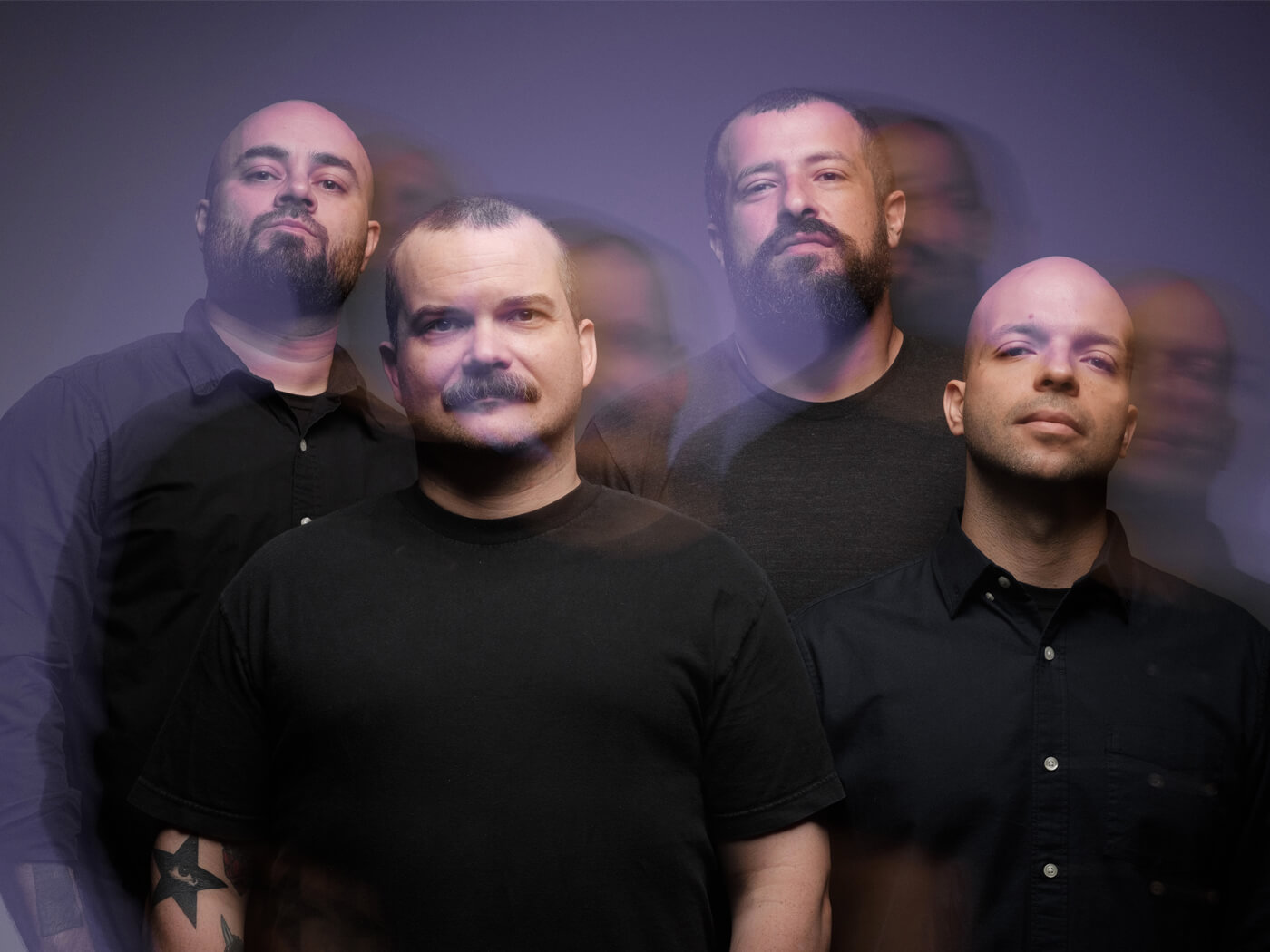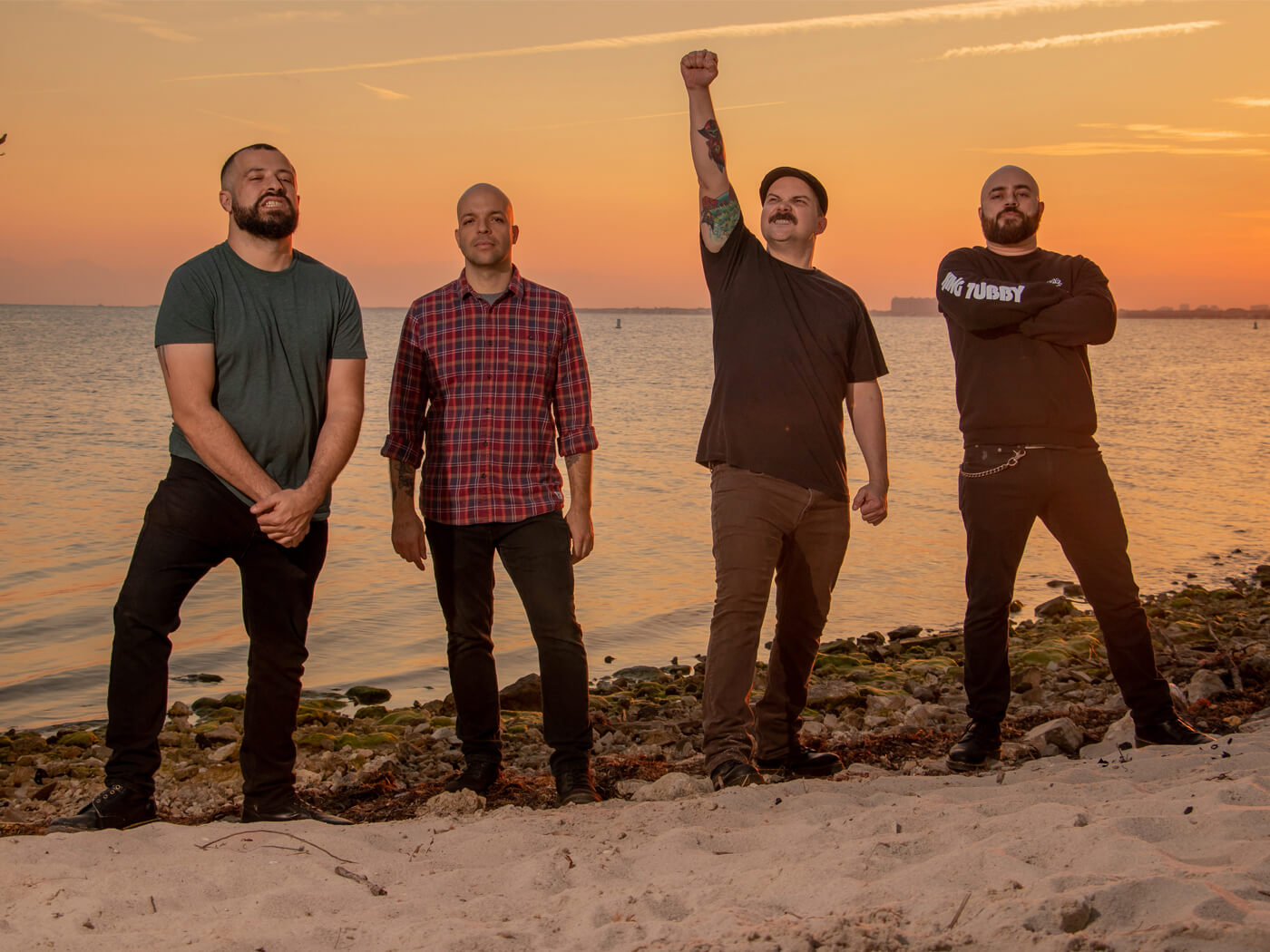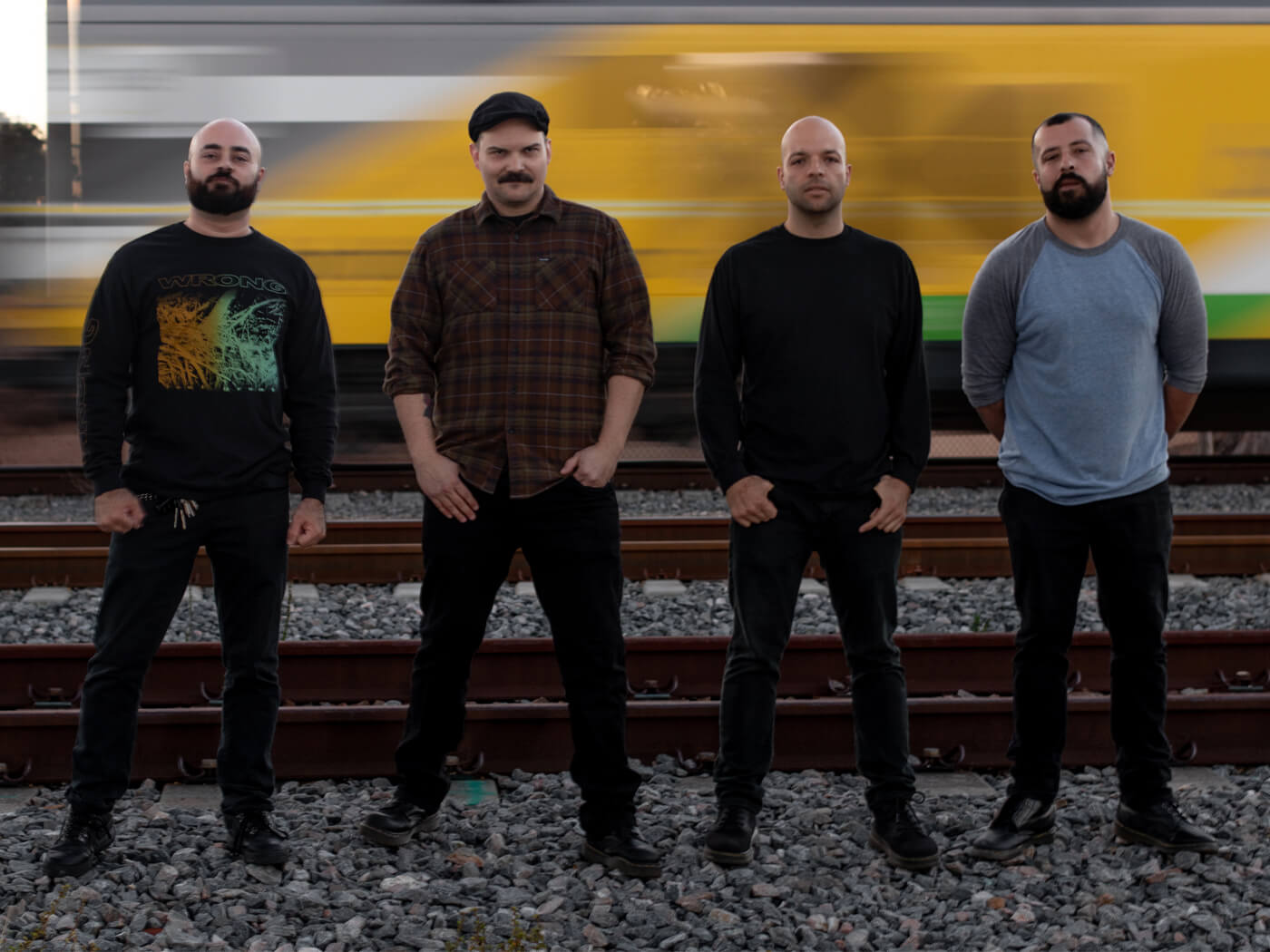“We’re more focused than we’ve been in a long time”: hybrid rock veterans Torche
Guitarists Steve Brooks and Jonathan Nuñez discuss the band’s musical evolution and how they developed both a gear line and album at the same time.

Image: Dan Almasy
When Torche emerged from Miami’s underground punk and metal scene in 2004, they immediately stood out for their ability to wrap anything from bottom-heavy chugging riffs, layers of ecstatic noise and bright melodic passages into hard-hitting songs. From there, things only got more exciting as the group opened up their sonic palette to include infectious pop hooks, lightning-fast proggy guitar leads and swaggering arena-ready rock – all while never straying too far from their roots.
Five albums and 15 years since they formed, there’s still no other band that sounds like Torche, though that hasn’t stopped people from trying to categorise them with labels like sludge pop or stoner rock. Founding member Steve Brooks points to their collective passion for musical exploration as the driving force behind their eclecticism. “We listen to a wide spectrum of things – everything from extreme noise to classical – and it’s who we are as well. I just consider us hybrid rock,” the singer-guitarist says.
Perhaps none of the band’s studio releases sum up that spirit as well as their crushing new album, Admission, their first record since longtime second guitarist Andrew Elstner left the band in 2016. With a tour looming and just days to find a solution to the loss of a member, founding bassist Jonathan Nuñez swapped his instrument for guitar and Eric Hernandez of Wrong was recruited for bass. These days Nuñez plays both Dunable Cyclops with a Bill Lawrence L500L pickup and a Fender HH Telecaster with Lace Pickups Nitro Hemi, while Brooks prefers JML Custom and EGC guitars.
Personnel changes aside, if you catch Torche on tour you might notice something else different on stage: brand-new gear from Nuñez Amps, the company Nuñez launched with Gary Phillips of Overtone Works in 2017. Partially inspired by his quest to create a distinct guitar sound in Torche as he had on bass, Nuñez and his bandmates actually road-tested the equipment during the development phase before bringing it into the studio to record Admission. It was an ambitious undertaking, but one fitting for a band whose DIY mentality extends into doing everything from record production to album art on their own.
We spoke to Brooks and Nuñez to learn more about how Torche have continued to push the bar throughout their career and their latest experiments with playing techniques and gear on Admission.

There are so many different styles that are instantly recognisable as the Torche sound. How do you pull them all together so that they make sense?
Steve Brooks: We’ve gotta keep it interesting for ourselves. So a lot of it just comes naturally, which is great – I mean, we’ve been able to make a sound where we can get away with doing whatever we want to do, and it still sounds like us.
Jonathan Nuñez: We’re a group that, for better or for worse, can only do what we’re passionate about. We’re pulling from all sorts of areas of our interest, influences and inspirations, but in the end having a group of people who are inspired by feeding off of one another, are never trying to tread over the same ground, and always want to naturally push forward is the essence to the sound.
How have you refined that over the years, especially leading up to Admission?
SB: We’ve done a lot of different things, and we’ll kind of keep it interesting with little things. Like, we’ll write a part and Rick [Smith] will come in with a drum beat, and that drum beat might change the whole vibe of the song. The next thing you know, you have a song that’s pretty different from other things that you’ve done.
JN: Throughout our years working together we’ve developed a thorough, efficient way of working where we communicate and throw out ideas very much in the moment, like a stream-of-conscious[ness] kind of flow. And if we do or do not like something, we voice that and try not to waste time. For years the band members have lived in different states, so we have to make the most out of our time when we get together.
What was it like to have Jon switch from bass to guitar, and to bring Eric in on bass?
SB: Jon basically picked up bass to play in this band, but he was already a guitar player who’s played guitar in other bands. After our second guitar player didn’t work out, Jon was like, “Hell, I’m gonna play guitar,” and we got Eric to play bass.
Jon and Rick went to school with Eric and they’ve played in so many different bands with him, and when Rick couldn’t play on certain tours Eric would come in and play the drums for us. So he’s kind of been a member for a long time, but this is the first time we’ve actually written and recorded with him. It just lit a spark in the rest of us, and we were just inspired to keep doing it. It’s been great to have somebody who knows the sound very well and is an asset to the band.
JN: One thing that was a challenge going into the record was not so much playing the guitar, because I’ve played guitar on most of the records. But I felt like I had a certain bass sound that I developed throughout years of really fine-tuning. It was cool to hear it translate onto the records and really become a staple of our sound.
There came a point where we had about a nine-day window between a tour in Europe with the old line-up, and [we had to decide between] literally not doing a full North American tour or switching the line-up, which is what we did. But when that tour started, the main thing that I realised [was] that we needed more guitar sound. It wasn’t really hitting… So, I had a lingering project that got pushed forward after a tour: developing a gear line with my good friend Gary Phillips… Long story short, by the time we recorded the record, a whole gear company had come out of this.
So if you hadn’t switched to the guitar, Nuñez Amps might not exist?
JN: Yeah, it’s insane. We couldn’t be more thrilled with the response, and all the praise that the products have gotten because they allow people to choose how they want their sound… No matter how much gain you dial in or where you turn your EQ, you’re still going to hear the natural voice of your instrument and your playing.
Around the time we finished writing [the new record] we did some tours with Gojira and Boris and a headlining run on the East Coast, and already had some stuff: a bass pedal, a guitar pedal, the head and the cab. I’d call Gary after our sets, and he’d say “Alright, lay it on me.” And I’d say, “Ok, check it out…” The next day, the same thing. We were really paying attention to what a touring musician would need. We wanted to make something that you cannot wait to play every day, whether you’re on the road, in the studio at home. Wherever you are, you’re going to be in total bliss because they’re going to make life easier – the only limitations are the players’ creative limitations, honestly.
Was it weird for the band to be kind of test subjects during the research and development stage? How did it impact the new record?
SB: Jon’s been working on the amps for years. I was playing what used to be an old Marshall that he had, he had a Hot Rod many years ago and I still play it every once in a while. So this record, with the new amps and everything, I’m pretty familiar with them. They sounded amazing in the studio and live. It’s pretty amazing what we’ve all been able to do, and we do everything ourselves. We do our recordings, now we’re doing our own videos, and we’re still learning a lot. And that’s the thing with all the old records. We just keep developing and you can hear the progression. We’re lucky.

You played a few shows as the singles came out. What’s the reaction to the new material been like?
JN: In the second single Times Missing, the middle section really opens up and just becomes this giant wall of sound, and I feel that people are just like, “Oh shit, they’re doing it. It’s happening.” Steve’s doing lead, Eric’s holding it down with Rick and building the fullness and the tone of the part with chords I’m playing on the bass. I’m so happy and grateful that I’ve been able to build loops and recreate that part – I leave all my overdubs on that section of the song.
That’s a new element that we haven’t messed with in the past, really. It’s new territory; usually if there’s a loop it’s when we switch tunings and there’s this whole tornado of shrapnel sounds or something. But actually building parts melodically and creating this texture and really ethereal, warped, just cascading, sonic thing that’s engulfing the crowd: you just feel like it’s getting bigger and bigger.
Is there anything else you do differently when you play these days than when you started?
SB: We’ll see. It’s been a while since we’ve toured and I think we’re doing a few things differently this time around. I don’t know how to explain it, but I think it’s just the energy we have now, and that’s gonna come through live. We’re more focused than we’ve been in a long time. We’ve come to realise a lot of things about ourselves, so I’m excited.
Admission is out now via Relapse Records. Torche will soon embark on a North American tour. Find dates here.
